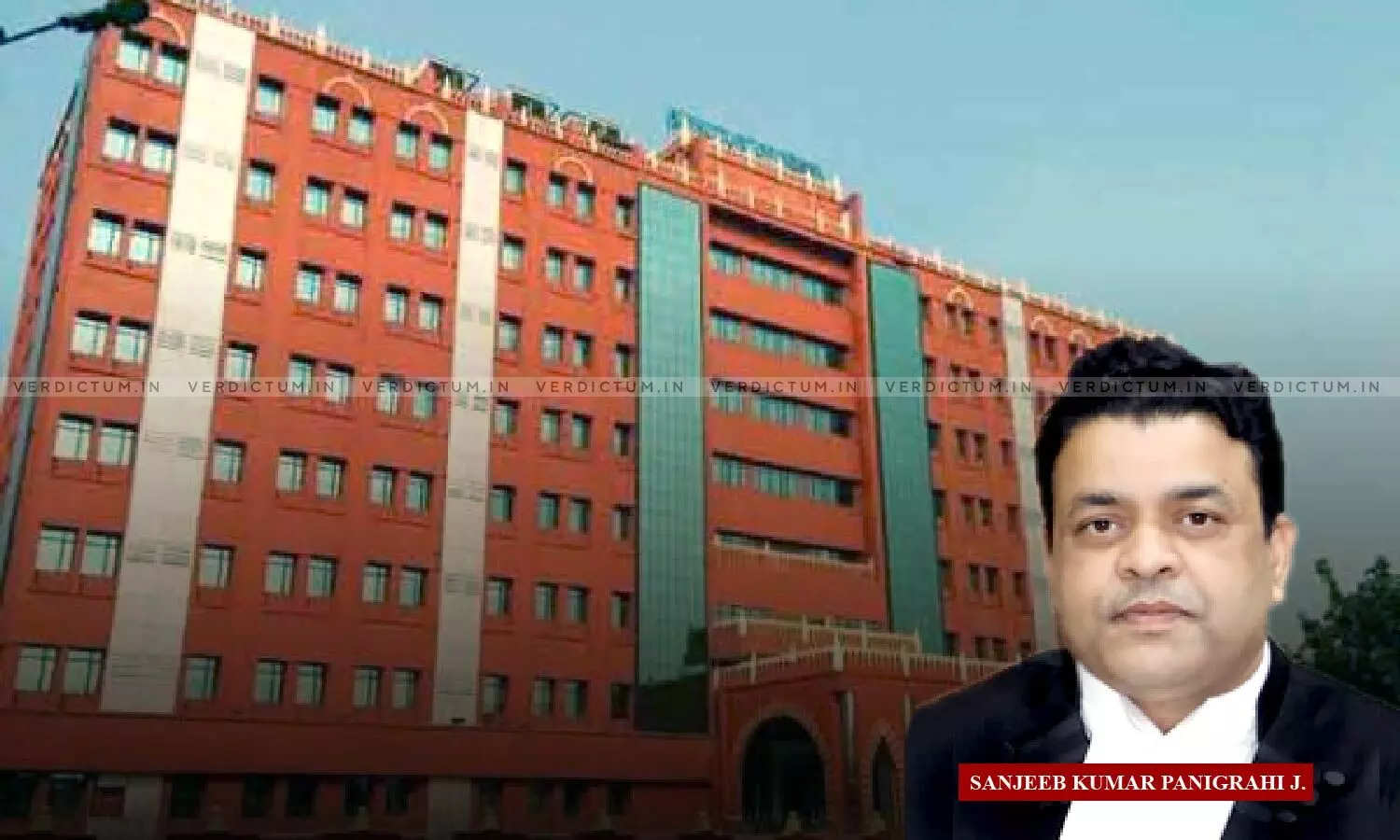
Law Holding Sex On False Promise Of Marriage Amounts To Rape Appears To Be Erroneous, Needs Relook- Orissa HC
 |
|The Orissa High Court recently granted bail to a man allegedly accused of committing rape on false promise of marriage and held that consent obtained on a false promise of marriage was no valid consent and law holding that having sex on false promise of marriage amounted to rape, appeared to be erroneous.
The Bench of Justice Dr. S.K. Panigrahi expressed his concern that the rape law often failed to capture the plight of socially disadvantaged and poor segment of the society, rural areas, who were often lured into sex by men on false promises of marriage and observed that “Nonetheless, it radiates from the above discussion that the law is well settled that consent obtained on a false promise to marry is not a valid consent. Hence, the automatic extension of provisions of Section 90 of I.P.C. to determine the effect of a consent under Section 375 of I.P.C. deserves a serious relook. The law holding that false promise to marriage amounts to rape appears to be erroneous.”
In this case, bail application had been preferred in an FIR case lodged under Section 344/376(2)(n)/506/109 of the Indian Penal Code, 1860 (In short ‘IPC’). On January 12, 2020, the petitioner eloped with the victim and went to Bhubaneswar with a promise to marry her. The petitioner had physical relationship with her for several days and then abandoned her and escaped. After the victim informed her father and her brother, they went to Bhubaneswar and rescued her.
Advocate Debasnan Das appearing for the petitioner submitted that the victim was major and that the victim went to Bhubaneswar out of her own will. It was also submitted that the medical report did not support the allegations of forceful sexual assault and therefore, cannot be held liable for rape under Section 376(2)(n) of IPC.
Additional Government Advocate D. Mund appeared for the respondent and argued that the petitioner with assurance of marriage took the victim with him and repeatedly committed sexual intercourse with the victim and took photos of her naked body and thereafter, he absconded after abandoning the victim. Further, the counsel raised objection that the nature and gravity of allegations against the petitioner are such that bail should not be granted.
The Court observed that the allegations of the victim that sexual assault was committed, photos of victim’s naked body were captured and subsequently, was abandoned, seemed to be cloudy and said that “The prima facie look of the medical report suggests that there was no forcible sexual intercourse though it is a matter of trial. Similarly, medical report suggests that the victim girl was not pregnant at the time of her medical examination. Truthfulness or falsity of the allegations, essentially pertains to the realm of evidence and the same cannot be pre-judged at this initial stage which warrants a trial to establish.”
The Court observed that the victim being a major girl with a sound mind, there seems to be no question of anyone being in a position to induce her into a physical relationship under an assurance of marriage.
“There could be a possibility of experimentation with erotic asphyxiation which is very much part of their sexual autonomy. It is an undenying fact that our society is still largely conservative when it comes to matters of sex and sexuality. The virginity is a prized element. Even if such relationship existed, though it is unequivocally denied by the Petitioner, a consensual relationship without even any assurance, obviously will not attract the offence under Section 376 of the Indian Penal Code.” said the Court
The Court relied on various judgments and observed that “The intention of the law makers is clear on this issue. The rape laws should not be used to regulate intimate relationships, especially in cases where women have agency and are entering a relationship by choice. It is also equally disturbing, many of the complaints come from socially disadvantaged and poor segment of the society, rural areas, who are often lured into sex by men on false promises of marriage. The rape law often fails to capture their plight.”
The Court also observed that the automatic extension of provisions of Section 90 of I.P.C. to determine the effect of a consent under Section 375 of IPC deserved a serious relook and cited the authoritative commentary on Criminal Law by Glanville William corroborates this proposition of law and held that "Since the framers of law have specifically provided the circumstances when 'consent' amounts to 'no consent in terms of Section 375 of I.P.C., hence consent for the sexual act on the pretext of marriage is not one of the circumstances mentioned under Section 375 of I.P.C."
Accordingly, the bail application was allowed.
Cause Title- Santosh Kumar Nayak v. State of Odisha
Click here to read/download the Order